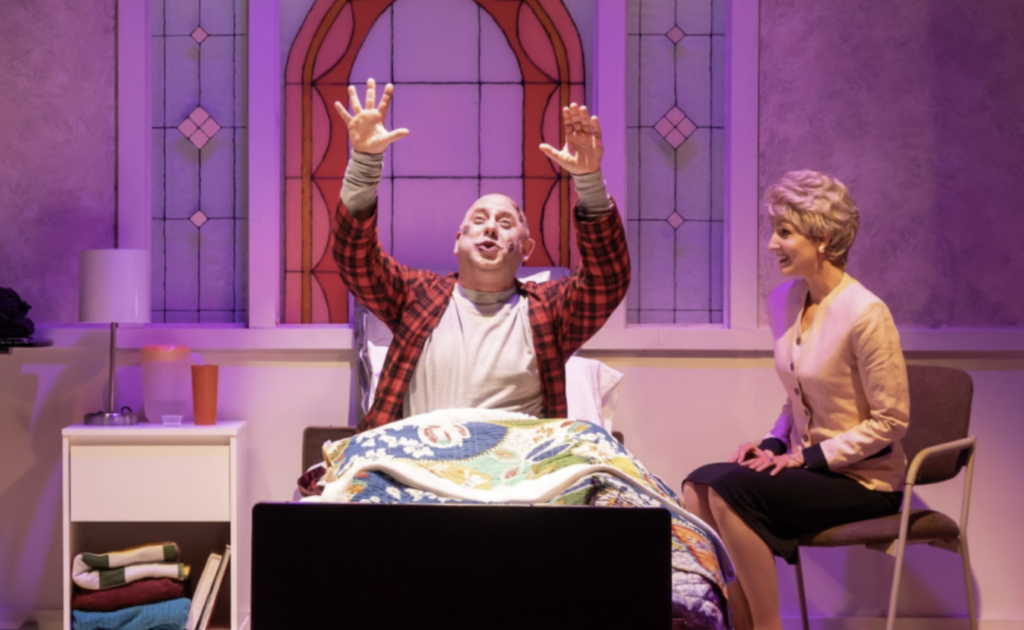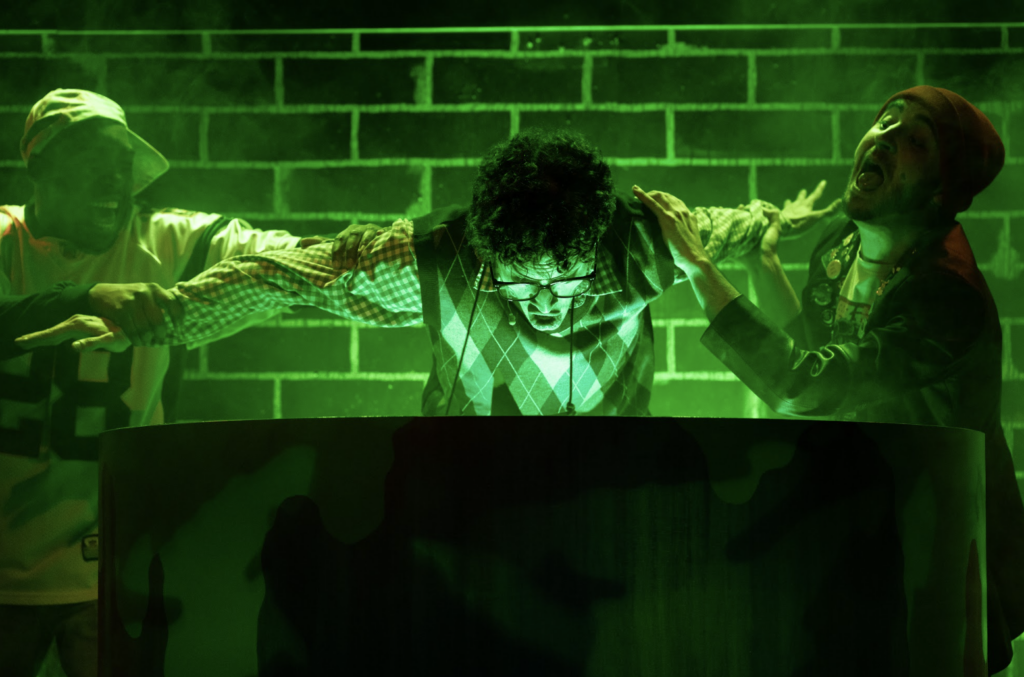Remixed musical fable & Juliet delivers a Max Martin-fueled fever dream at Music Hall
The touring production of & Juliet hit Kansas City Nov. 18-23 with enough spark to light up the entire Music Hall, and the audience never stopped responding. From the first minutes, it felt like Shakespeare dropped into an episode of Glee in the best way possible, only with sharper writing, louder laughs, and a cast that throws everything at the wall and somehow makes it all land. Even for someone walking in cold, the show moves fast, sometimes too fast at the top, but once it settles into its rhythm, the ride becomes irresistible.
Fabiola Caraballo Quijada, who plays Juliet, is the center of attention, giving an incredible performance for a recent high school graduate. Her acting displays a range that would astound actors twice her age, and her voice fills the theater with strength and clarity. Without losing control of the moment, she alternates between cheerful humor, open vulnerability, and powerful confidence. “Baby One More Time” was wonderful, delivered with purpose rather than flash, and had emotional depth that struck deeper than anticipated. The story gains momentum from her chemistry with the rest of the cast, and each scene is kept alive by her timing in both movement and dialogue. Watching her on a national tour this early in her career feels like witnessing the start of something big, and I can’t wait to see what she does next.
Nico Ochoa’s May becomes the emotional core of the show, and every moment they appear on stage draws the audience in. Their performance of “I’m Not a Girl Not Yet a Woman” brought real tears because they delivered the song with honesty instead of melodrama. “I Kissed a Girl” gave the song an even more charming queer twist, strengthening May’s arc and adding more dimension to the story. Casting a nonbinary performer in this role adds depth the show has always needed, and Ochoa’s presence proves how right that choice is. Their moments with François, played by Noah Marlowe, are tender and romantic, and their connection gives the show a beating heart.
Crystal Kellogg’s Anne Hathaway/April arrives with a lively presence and a playful back-and-forth with Shakespeare. Some vocal moments wavered in songs that rely on sustained belting, particularly when she took the lead without ensemble support. “Blow” was one of the more challenging moments of the night for her because she did not entirely sell the attitude and intention the song demands. She recovered beautifully in Act Two with “That’s the Way It Is”, which she delivered with warmth and control. That number reminded the audience of Anne’s centrality to the story and showed what Kellogg can do when she finds her footing.
CJ Eldred steps in as Shakespeare with a strong voice and a confident sense of mischief. He shapes the story as both narrator and obstacle, and the production leans into his moments of vanity and insecurity, elevating the comedy. His scenes with Anne add structure to the show’s meta framing and keep the stakes clear even during the wildest sequences.
Joseph Torres as Romeo explodes onto the stage with a swaggering entrance to “It’s My Life”. The character looks like the exact kind of self-absorbed chaos the story needs, and Torres commits fully to that first impression before letting Romeo evolve. The second act gives him more space to grow, and he becomes far more entertaining once the show pokes holes in his bravado. Juliet’s delivery of “Since U Been Gone” after his dramatic return from the dead became one of the most powerful and funniest musical moments of the night.
Kathryn Allison, reprising her role as Angélique, brings clean vocals and effortless comedic freedom. She shines in the mashup of “Teenage Dream/Break Free” with Lance, who is François’s father, and gives every solo moment clarity. Her presence adds warmth to the show’s humor and helps ground the more chaotic sections. Paul-Jordan Jansen as Lance brings joyful chaos in all the right ways and commits fully to the character’s bighearted silliness. His comedic instincts shape entire scenes, and his timing expands jokes that could otherwise slip by unnoticed.
The ensemble deserves real praise for their performance abilities. “Oops I Did It Again” keeps shifting from one character to another with full verses and choruses followed by short mini-scenes that hand the song off in surprising ways. The players deliver outstanding choreography throughout, and their physicality keeps the humor sharp. “Problem/Can’t Feel My Face” had some of the cleanest and most precise hip-hop choreography of the night. The De Bois moment for “Everybody (Backstreets Back)” gave the audience a hit of Backstreet Boys nostalgia and kept the energy high.
Because Max Martin wrote or produced every song in & Juliet, the show rides a wave of classic pop successes without ever crumbling beneath their weight. The cast finds humorous and emotional rhythms in songs the audience is already familiar with, and the production integrates them into the story with surprising coherence for a jukebox musical.
Paloma Young‘s costumes shape the world rather than detract from it by fusing Renaissance silhouettes with contemporary textiles. The show’s visual identity remains consistent and playful, helping the pop hits slip naturally into the story. Because of the cast’s complete commitment, even scenes that verge on cheesy girl-power messaging feel genuine.
The story’s message is grounded in authenticity. In “Roar,” Juliet’s metamorphosis has a genuine emotional impact, and I never thought I would find myself crying to this song. As Juliet takes charge of her story and makes her own decisions, the conclusion shifts the focus to Juliet and Romeo rather than Romeo and Juliet. It feels warm, refreshing, and celebratory.
When the cast launched into “Can’t Stop the Feeling” for the finale, the entire Music Hall rose to its feet. People danced, clapped, and cheered until the last note. Kansas City showed up ready for a good time, and this cast returned that energy with everything they had.











